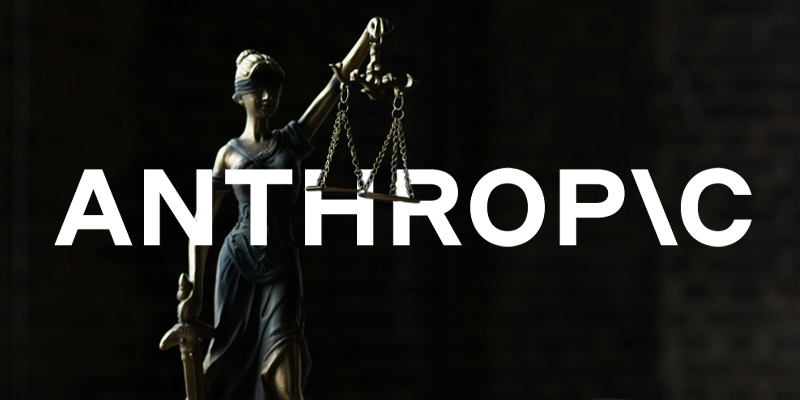August 27, 2025, 9:30am
Here’s my best impression of a late night ad for a law firm: Do you think your book may have been stolen by an AI company? Then you might be entitled to be part of a class action lawsuit!
The case in question is Bartz v. Anthropic, where plaintiffs are accusing the AI tech giant Anthropic of having copied as many as seven million books from the pirated databases of LibGen and PiLiMi, and are seeking damages.
As it winds it way through the courts, the lawyers representing the plaintiffs want to hear from authors who may be affected. Lieff Cabraser Heimann & Bernstein have set up a site where you can enter in your name, your books, and your contact info to stay in touch. (If you’re not sure if your book is affected, The Atlantic built a tool to search LibGen.) Signing up with Lieff Cabraser Heimann & Bernstein isn’t joining the lawsuit, but is way to stay in the loop as things progress.
As it stands, the suit is ongoing. In June, U.S. District Judge William Alsup ruled that while Anthropic’s “training of its Claude LLMs on authors’ works was ‘exceedingly transformative, and therefore protected by fair use,” its pirating of books was not covered by fair use, and that the case may proceed against the tech company.
In the same ruling, Judge Alsup dismissed some of the plaintiff’s proposed classes as too difficult to identify, but certified “a LibGen and PiLiMi Pirated Books Class … limited to actual or beneficial owners of timely registered copyrights in ISBN/ASIN-bearing books downloaded by Anthropic from these two pirate libraries.”
Crucially, this doesn’t just mean authors. Alsup wrote that this will “cover everyone who owns the specific copyright interest in play,” which he defines as “someone like an author who receives royalties from any publisher’s revenues or recoveries from the right to make copies.” This definition is broad enough to include publishers and others who may have been damaged.
This isn’t the only case of its kind currently in the courts: Meta has also been accused of violating intellectual property. If you’re curious about more of the nitty-gritty of these cases and what they might mean, the Authors Alliance has an in-depth, two-part explanation of Bartz v. Anthropic and class actions more generally.
It seems pretty cut and dry to me that you shouldn’t steal books at such a vast scale. The defense of these business practices seems to come down to an appeal to the mission—“Making AI is too important to be restrained”—or simply, “We wanted to do this and should be allowed to.”
There’s also the annoying what-aboutism that goes something like, “Well where do you draw the line? Isn’t anyone who reads a book for inspiration for their own writing essentially stealing too?” Of course not. This is mostly an issue of scale: no single author is reading with anywhere near the speed and volume of these companies’ ingestion of material.
And also: Come on. Are you violating the flower’s intellectual property when you compose a poem in its honor? Be serious.
This case advancing feels especially cathartic at the end of a month full of stories about the damage wrought in AI’s wake. This software’s has been involved in some horrible and tragic deaths, and actively assisting in genocide. Generative AI’s flashy promises aren’t coming true, either: MIT found that 95% of generative software is failing to help companies become more profitable.
These could be signs of the AI bubble starting to burst, but I’m afraid this tech may already be too big to fail. Even if AI’s capabilities plateau, there’s enough money being pumped into the industry to insulate it from typical market pressures. Plus, AI has powerful backers in both the federal government and state governments like California, so meaningful oversight seems unlikely.
And most of all, the authoritarian right loves AI. Gareth Watkins wrote in his excellent piece, “AI: The New Aesthetics of Fascism”, that “in a short time, a full half of the political spectrum has collectively fallen for the glossy, disturbing visuals created by generative AI.” He continues:
AI is a cruel technology. It replaces workers, devours millions of gallons of water, vomits CO2 into the atmosphere, propagandizes exclusively for the worst ideologies, and fills the world with more ugliness and stupidity.
Why worry about the ethics of consumption and creation when you’re the aesthetic arm of the right-wing regime in power? It’s an ugly, but stable place to be right now.
